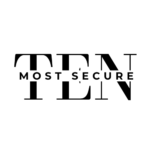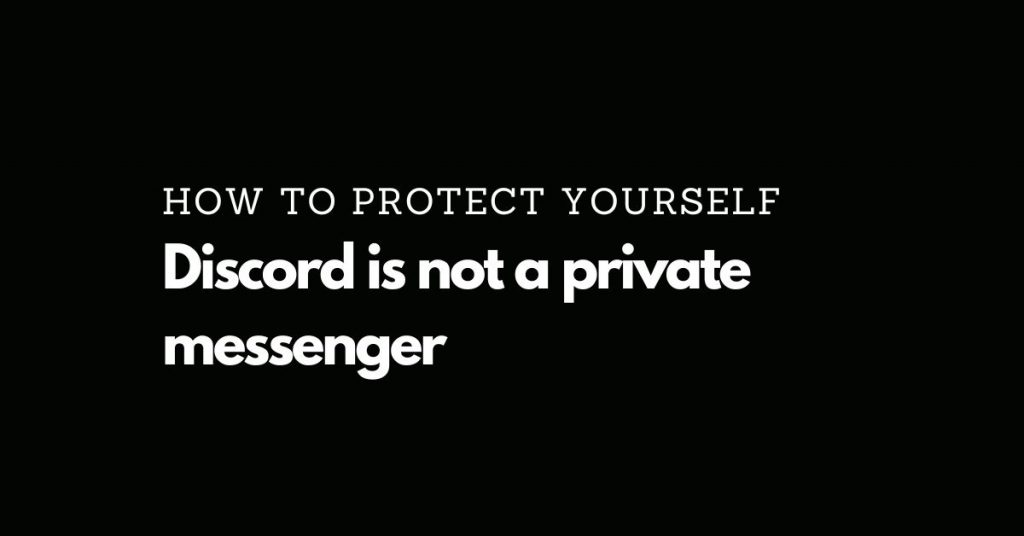Discord feels like a private hangout for friends and communities. But in reality, it behaves more like a public square. Most activity happens in spaces that anyone can join, and standard chats do not use end-to-end encryption. Treat Discord as public by default, and you will make better choices about what you share, what you connect to, and where you move sensitive conversations.
What Discord exposes by design
Discord routes text, images, and files through its own infrastructure. Standard servers, channels, and direct messages do not use end-to-end encryption. The service can access content to provide features such as search and moderation. Any compromise of an open space or a bulk scrape can copy what you post. Even if a channel feels private, invite links, role changes, or logging bots can expand visibility without notice. If a stranger can join and read, a script can do the same.
The real target is your metadata
Scrapers prize the details around your messages (metadata) as much as the content. Usernames and numeric IDs tie posts to an identity. Server memberships and roles show your communities and status. Timestamps and presence reveal routines and time zones. Reactions, attachments, and connected accounts add interests and links to other platforms. Alone these items seem harmless. Together they map habits, contacts, and topics in a way that enables targeted phishing, impersonation, and doxxing. Remove public Connections and hide activity to break those links.
Discord bots, invites, and giveaways are quite data drains
Bots make servers more useful. Many request permissions that include reading message history, uploading content, or managing the server. Review scopes before you authorize anything. Legitimate servers publish what they log, how long they retain logs, and who can access them. If you cannot find a privacy note, ask a moderator. If you do not receive an answer, leave. Treat Nitro giveaways, QR checks, and third-party forms as data collection points. Prefer role-gated channels for sensitive topics because they reduce drive by scraping.
When to move a conversation to a secure messenger
Discord fits communities, events, and casual chat. It is a poor place for anything that would harm you if leaked. Use a simple rule. If a message includes identity details, finances, health information, family matters, or work secrets, move that discussion to a secure messenger that uses end-to-end encryption and keeps metadata small. Good options include Signal, Threema, Session, Wire, and WhatsApp with caution due to metadata collection. For a concise comparison and setup guidance, read Top Most Secure Messaging Apps for 2025.
A practical privacy checklist for everyday use
- Use a pseudonym
Pick a handle that does not include your real name. Avoid the same avatar you use on other platforms. - Lock down direct contact
Open User Settings then Privacy and Safety. Turn off Allow direct messages from server members. Set friend requests to the minimum that works for you. - Hide activity and connections
In Activity Privacy turn off Display current activity as a status message. In Connections set each linked account to private or remove it. - Review every server
Leave servers you do not use. For servers you keep, scan the channel list and look for logging or export bots. If a server publishes logs or transcripts, assume your posts persist. - Enable two factor with an authenticator app
Open User Settings then My Account then Enable Two Factor Auth. Prefer an authenticator app over SMS. Store backup codes offline. - Prune sensitive content
Delete posts with names, addresses, phone numbers, payment details, or documents. Do not use self bots or bulk deletion tools that violate Terms of Service. - Tighten link safety
Avoid shortened links and QR codes. Do not follow third party verification links. Keep your system and browser updated.
Clean up and take back control of your footprint
The more data a service has on you (digital footprint), the more vulnerable you are. Start by requesting your data export in Privacy and Safety and review what Discord stores for your account. Remove old servers and channels you do not need. Revoke app authorizations you no longer use both in Discord and inside each linked service. Rotate your public identity with a new avatar and consider a new username to reduce cross platform linking. Sign out of devices you no longer use and regenerate backup codes. Share these steps with friends who tag you or mention you in public channels since your privacy also depends on their habits.
If your Discord posts appear in a scrape
..it means someone has copied large amounts of messages and profiles and put them into a database that others can search or even buy. Even if you only posted in public servers, having your chats bundled this way is unseteling and can trigger phishing, harassment, or impersonation. Here’s what to do right away:
1.Expect targeted phishing that references your servers and hobbies. Tighten email and Discord security and enable two factor on connected accounts
2.Rotate avatar and change display name in public servers if harassment starts, then restrict friend settings
3.Revoke OAuth access to unknown apps in Discord and in connected platforms
4.Search for your handle and unique phrases from your posts on popular search engines and paste sites, then file removal or abuse reports where possible
5.Set social profiles to private for a period and warn friends about impersonation attempts
6.If the scrape includes private images or documents, preserve evidence and check local legal options
Quick guidance for parents
Teens use Discord for clubs, gaming, and after school chat. Set safe defaults together. Turn off direct messages from server members, restrict friend requests, and disable activity status. Help your child pick a handle that does not include their real name. Keep school and club activity on a separate account from public game servers. Explain that servers feel private and are not, and move anything sensitive to a secure messenger or a call in a trusted app. Read server rules and privacy notes together and skip any community that pushes giveaways or verification links.
A template for community hosts
If you run a Discord server, these steps help you reduce exposure and make your community harder to scrape:
- Publish a short privacy note
State what you log, who can access logs, and how long you retain them - Minimize retention
Keep only what you need for moderation and set automatic rotation for logs and audit data - Use least privilege
Grant bots and roles the minimum permissions required and avoid message content access unless essential - Control discovery and invites
Disable Server Discovery unless intentional and restrict who can create invite links with time and member limits - Lock down webhooks and tokens
Restrict creation rights and rotate webhook URLs and bot tokens on a schedule - Watch for scraping behavior
Monitor unusual join spikes, message fetch bursts, and suspicious API usage and enforce rules against harvesting
Servers that show care attract better communities and discourage opportunistic scraping
Reminder for Discord users
Assume Discord is public by default and post accordingly. Lock down your profile, shrink your server list, and remove risky connections. Move sensitive topics to a secure messenger and keep metadata small. For practical picks and setup steps, read the Top 5 Most Secure Messaging Apps for 2025
Fifteen minutes of cleanup and a few setting changes cut exposure today. You get less data to scrape, fewer links to your real identity, and safer conversations.

